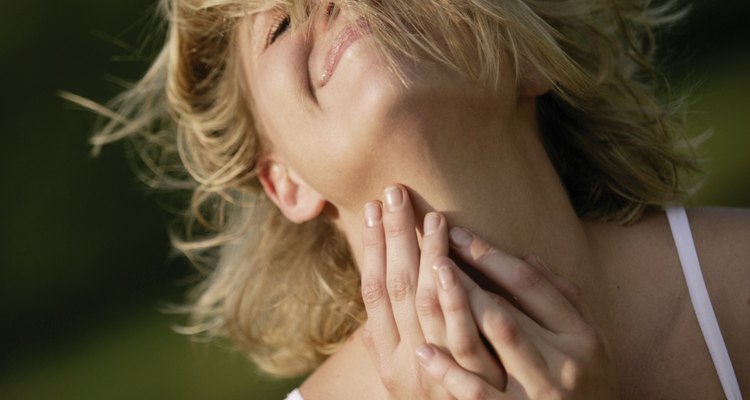
Comstock/Stockbyte/Getty Images
People may experience slow hair growth because of poor nutrition, which means they are not getting proper vitamins and nutrients from their diet. Eighty-eight percent of hair is composed of protein that is attached by amino acids. One vitamin that aids in hair growth is vitamin B2, also known as riboflavin. This vitamin is part of the eight essential B vitamins that help convert carbohydrates from food into fuel in the body to produce more energy.
Function
Riboflavin is known as an antioxidant in which it searches the body for damaged particles called free radicals, according to The University of Maryland Medical Center. These free radicals naturally occur in the body, but they damage DNA and cells. DNA signals the body to make various protein, if the DNA becomes damaged protein would not be functioning properly, which means hair growth may slow down.
Benefits
According to Medline Plus, a service of the U.S. National Library of Medicine, riboflavin is known to increase energy levels, boost functions of the immune system and maintain healthy hair, skin and nails. Riboflavin plays a crucial role in hair growth by activating vitamin B6 and niacin; these two vitamins are also key to hair development, according to Hair Loss Information. Vitamin B6 gives hair melanin and is known to prevent hair loss.
Sources
Sources of riboflavin can be found in rice, mushrooms, dairy products such as milk and yogurt, leafy green vegetables such as Brussels sprouts and spinach, eggs, whole grains and almonds. According to the University of Maryland Medical Center, light destroys riboflavin content, as well as when foods are boiled or soaked; the best way to consume food containing riboflavin is to eat it raw, roast or steam the food, for the content will still remain.
Daily Intake
A deficiency in riboflavin has been known to trigger hair loss. According to Medline Plus, The Food and Nutrition Board at the Institute of Medicine refers to a specific amount of daily dietary intake of riboflavin which includes; infants, 0.4 mg daily; children under the age of 9, 0.6 mg daily; from the age of 9 to 13, 0.9 mg daily. Males 14 and older need 1.3 mg daily and females need 1.1 mg daily.
Supplementation
Taking oral vitamin supplements is an effective way to provide hair follicles with the proper nutrients needed to increase hair growth, according to TargetWoman. The oral vitamins go through the bloodstream much faster than with food consumption. For supplementation it is recommended to take 50 mg; riboflavin can be found in most B complex vitamins, and when taken with vitamin C absorption will increase.
Considerations
Having riboflavin in your diet will help promote healthy hair growth. Most people who have a healthy lifestyle and eat a well-balanced diet have enough riboflavin for their daily consumption. Some who may be at risk for a deficiency are those who have an unhealthy diet, including alcoholics; symptoms of a deficiency include slow growth, tiredness, digestive problems, swelling of the throat and sores around the corners of the mouth.
Related Articles

L-Lysine for Hair Growth
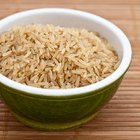
Food Sources of Betaine

A List of Foods That Contain Choline
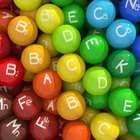
What Vitamins Help the Liver?

Iron Rich Indian Foods

Best Time to Take Vitamin B Complex
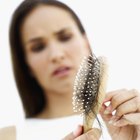
Is Zinc Good for Hair Growth?

Nutrition and Protein in Rice

Essential Enzymes for Hair Growth

The Nutrition of 15-Bean Soup
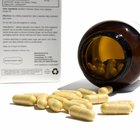
Nac & Hair Growth

Strontium-Rich Foods
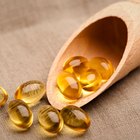
Selenium & Zinc for Hair Loss

Tips to Grow Pubic Hair
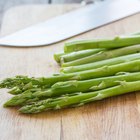
Top Vegetables With Selenium
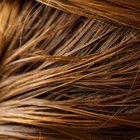
Can Eating Healthy Food Change the ...

Zinc & Copper for Aging Skin

High Fiber & Protein Diet Menus

Meat & Cheese Diet

How to Control Sebum in Hair with ...
References
Writer Bio
Dustin Bogle is an experienced personal trainer, group fitness instructor, nutritionist and fitness article writer. His articles have been featured in "Daily Press" newspaper and "Fresh Ink" newspaper.
Photo Credits
Comstock/Stockbyte/Getty Images